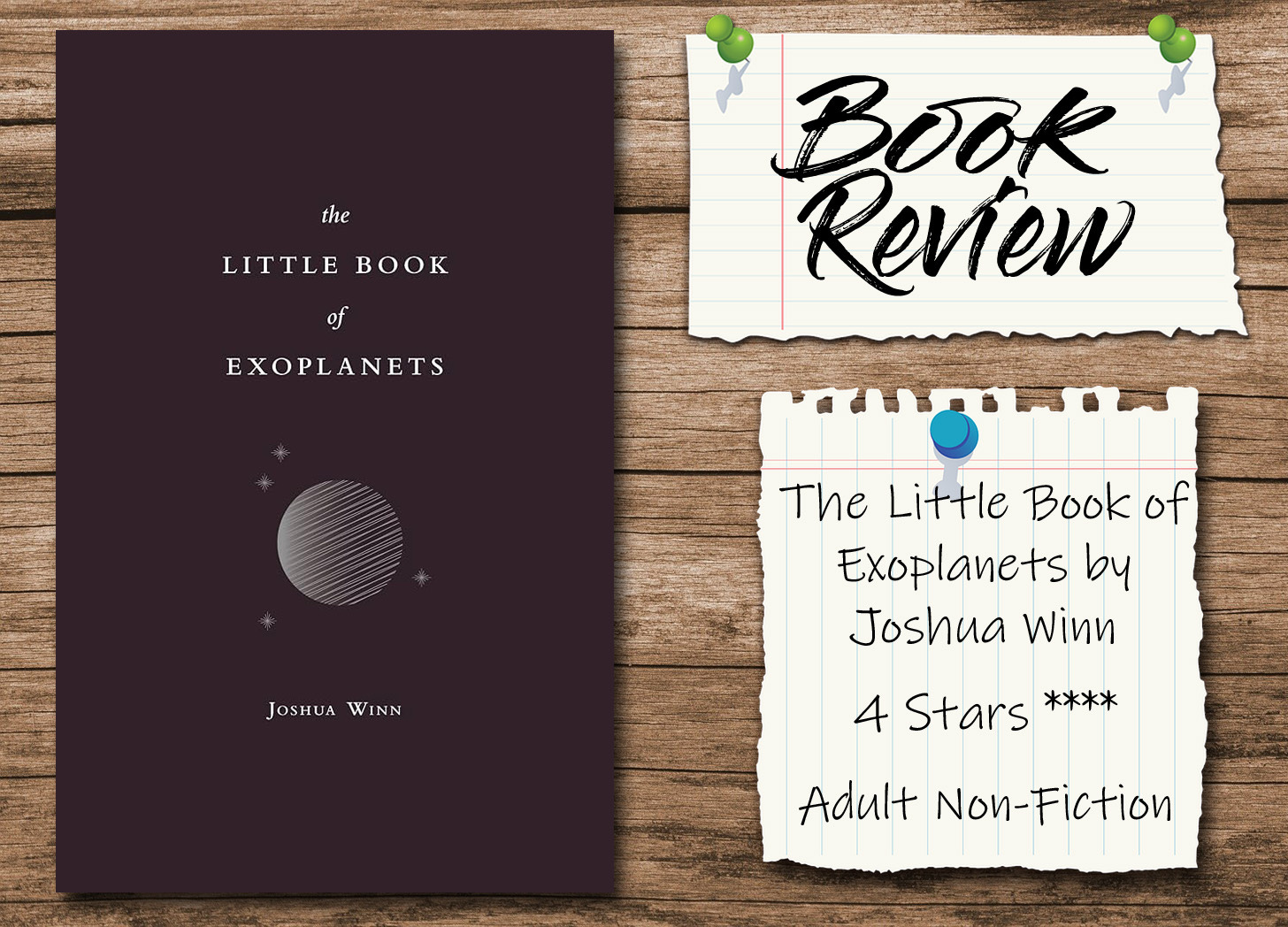Title: The Little Book of Exoplanets
Author: Joshua Winn
Published: 11th July 2023
Genre: Non-Fiction, Space Science
Age: Adult
What’s it About?
I think the title might be fairly self-explanatory here. The Little Book of Exoplanets is a popular science book about exoplanets - planets that orbit stars other than our own Sun. Until only a few decades ago, the search for exoplanets was seen as fringe science and considered by many to be a waste of time. Today, however, scientists have discovered thousands of them and had their beliefs about how planets form challenged again and again in the process. The Little Book of Exoplanets looks at what exoplanets are, the many different ways we have of detecting them, the often strange stars they orbit, and what discoveries may await us in the not-too-distant future.
It was the first time I'd ever seen a truly dark night sky. Bright stars began appearing in their familiar patterns - but here, far from city lights, they gleamed like diamonds on black velvet. As twilight deepened and my eyes adjusted to the darkness, it seemed like a fog was slowly dissipating, revealing multitudes of fainter stars.
Opinions:
I've always been interested in space and even studied astrophysics at university, so when I spotted The Little Book of Exoplanets in the list of Libro.fm review copies last year, it was an immediate must-read. Given my background and that I've kept up to date with exoplanet research in the intervening years, I didn't learn a vast amount of new information from this particular book as it was covering a lot of fairly basic ground: what is an exoplanet, how do we find them? However, for those completely new to the topic, this will be an invaluable resource that teaches a lot without getting overly complex or bogged down in technical minutia. That being said, there was still plenty here for readers like me. It's always great to dig into the new methods being thought up every year and get a refresher on techniques and history.
I listened to the book as an audiobook narrated by the author, and really enjoyed experiencing it this way. One negative point regarding the audiobook is that you miss out on the colour plates and diagrams found in the centre of the printed edition, and at times it can be challenging to follow some of the more mathematical sections. That being said, I feel like it may also be beneficial at times to hear the large numbers being read out loud because reading 3*10^8 m/s is never going to be instantly understandable to many casual science readers.
By detecting and studying the full range of possible planetary systems, we hope to learn more about where planets come from, and view the Earth and the Solar System from a more universal perspective.
The Little Book of Exoplanets is part of a series from Princeton University Press that also includes titles on cosmology, black holes, and string theory, each written by a leading expert (or two) in the field. These are all topics I know much less about than exoplanets, and I hope to be able to pick them up in the not-too-distant future and perhaps wrap my head a little more around them.
This was a fascinating book packed with interesting information that will be accessible to anyone interested in astronomy, while also being engaging for those who read a lot of popular science or already have a background in the basics and so find many introductory books repetitive. Many thanks to Libro.fm and Princeton University Press for the ARC.
Rating: 4/5




